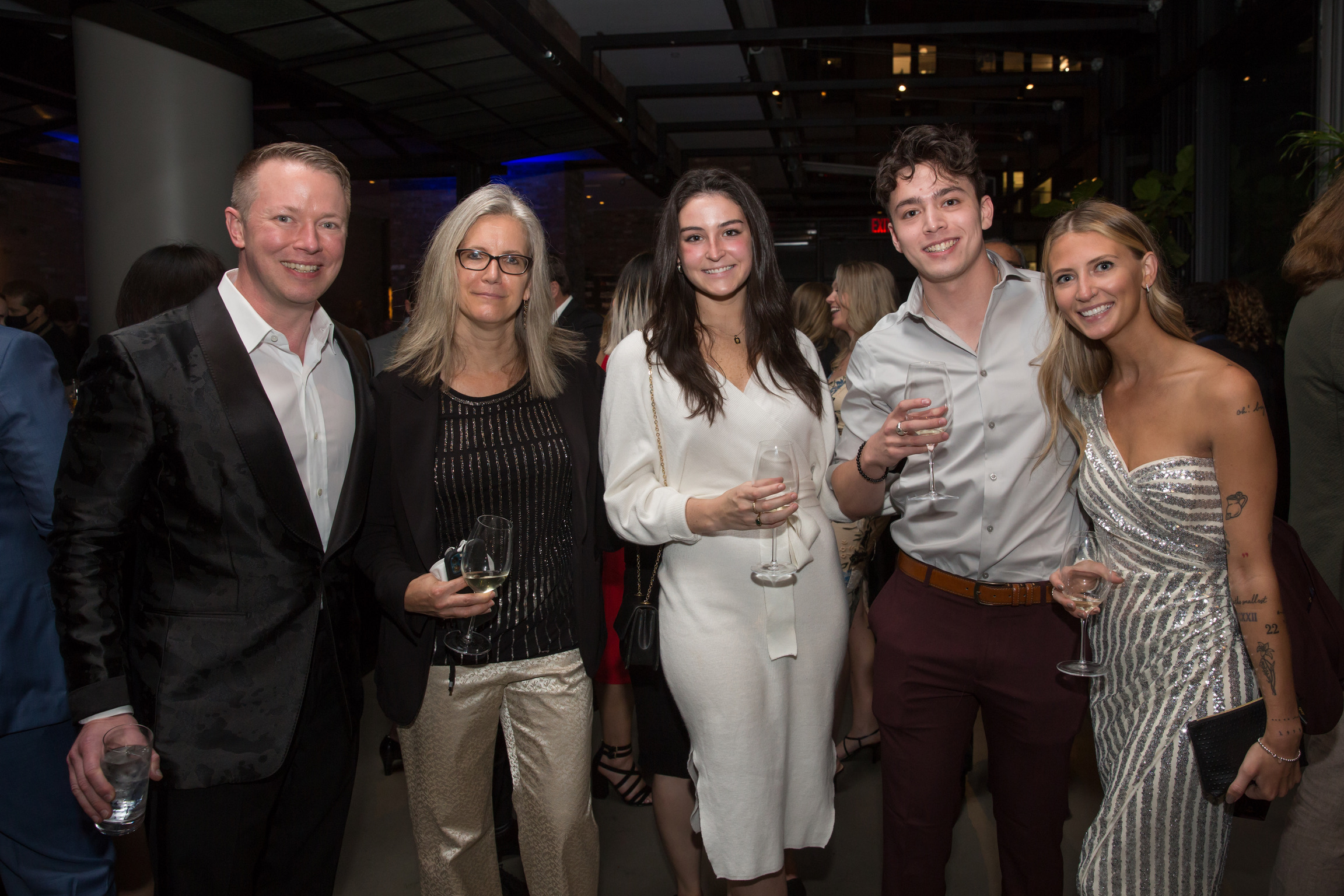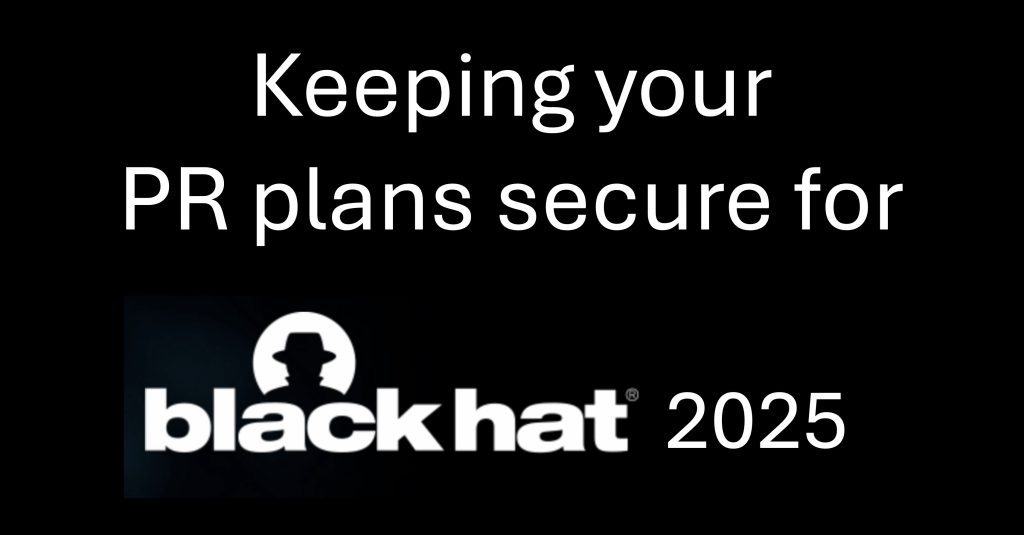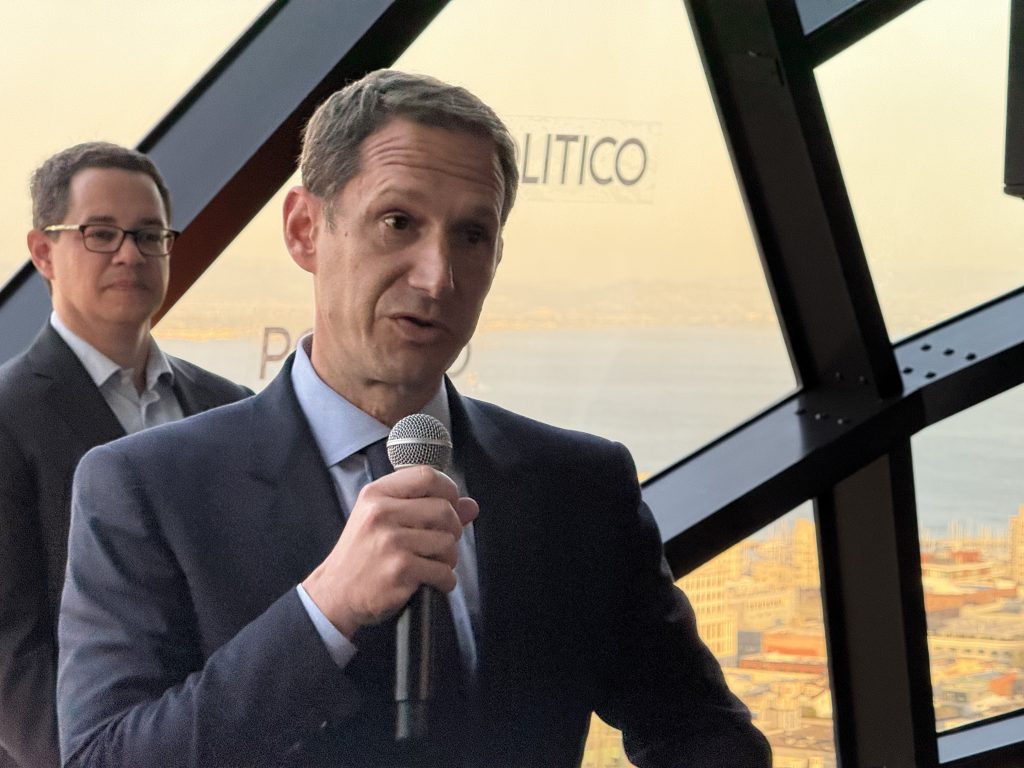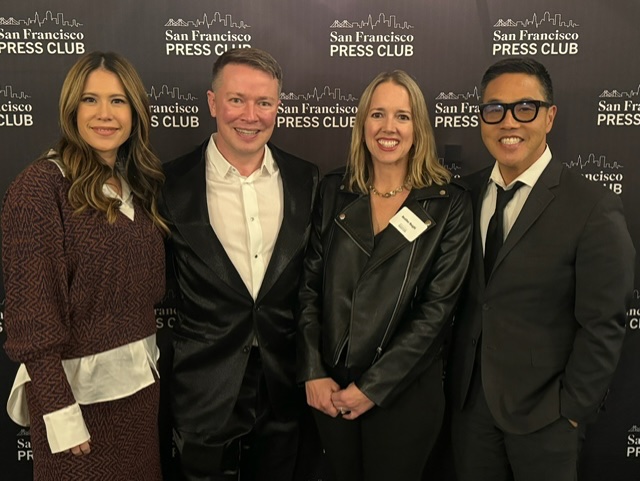Jesus, Messi and BOTUS … Beyond four quarters of tough, stalemate football, Super Bowl Sunday was nothing short of a Hail Mary attempt to soothe America’s divided psyche — and sell stuff — if ever there was one.
The integration of marketing into every layer of the big game broadcast felt inescapable: Game commentators transitioned themselves into Geico ads at the actual sports desk. Beyonce dropped new singles from space and let Verizon come along for the ride. Frank Sinatra’s nostalgic, legendary tune ‘My Way’ lit up the Sphere to back a touching, YouTube-sponsored piece on players’ challenges and family stories. The NFL promoted itself in every manner possible, while CBS and Paramount+ promoted what felt like all of their streaming content, and every anticipated new summer and fall blockbuster movie, to boot. And, of course, multiple ads winked knowingly at Taylor Swift’s impact on new NFL viewership — is that what she and Goodell were chatting about?
But, amid those marketing layers and that record-shattering viewership of more than 123 million, corporate America’s messaging to a divided Main Street America was front and center.
That messaging aimed to connect with a sprawling, opinionated public in at least four major ways: via appeals to conscience, Hollywood hero humor, historical successes and fluffy fun. But it couldn’t gain enough yardage to merit MVP. In fact, it was uncanny that the communication impasse we’re trying to overcome more broadly in America was mirrored in the game action itself, which was largely at the line of scrimmage throughout regulation play. Neither team achieved big gains. Huge tensions clashed right at the line, where side faced off against side. None of the smart plays designed by offensive coordinators were big wins because the defenses were so intense. And, at times, offense couldn’t control their frustrations either. Just ask Travis Kelce, Andy Reid, concerned Swifties and the internet. Marketers were dealing with America’s line of scrimmage, and their plays to break through and gain some real ground on both sides are worth learning from.
Here’s some of what we saw from marketers digging deep and making plays in those four major messaging zones.
Appeals to conscience … and those undeniable Jesus ads
The ads and marketing maneuvers that came closest to confronting America’s divisiveness drilled into unifying parts of the human experience with compassion. They all dwelt on empathy, opportunity and creativity for constructive ends. Disarm your audience, make them hopeful and, with a little luck, they’ll remember. An explicit CTA is vital, as Similarweb masterfully explained in a recent blog. Regardless of one’s religious stance (and this writer is an ‘other’), it’s undeniable that the Jesus-centered Foot Washing and Know Your Neighbor Super Bowl commercials delivered a visually poignant, emotional appeal to conscience. Amid our tense national mood, that very fact was cause for being hammered at the line of scrimmage — angering many on the left, who see dirty money and twisted motives behind an inauthentic message, and many on the right, who feel betrayed by these “gnostic heresy” ads. The latter were among those too perturbed by the Black national anthem and Civil Rights hymn, “Lift Every Voice and Sing,” to enjoy Andra Day’s momentous, always-appropriate rendition of it, alongside Reba McEntire’s moving “Star-Spangled Banner” and Post Malone’s soulful “America the Beautiful” to kick off the game in the spirit of unity.
Post Malone continued the unity theme in defense of Bud Light, not just in the genie ad with Peyton Manning, but in the stands at the game with Sonny Valicenti and a dozen others, big blue Bud Light bottles in hand. His championing of the brand follows best practices too — he was a Bud Light drinker before he was ever paid for it. In the context of what Bud Light has been through in the past year, the Post Malone-empowered messaging is a conscience play that also leverages his star power.
The Jesus marketers shared the unity-themed spotlight with NFL Patriots owner Robert Kraft, who teamed up with civil rights leader and MLK Jr. speechwriter Dr. Clarence Jones on two ads reminding us that antisemitism and all forms of hate thrive on silence. With the Super Bowl held well into Black History Month, it was fitting too that civil rights reverberated, literally, in the halftime show — a huge marketing play itself for the NFL, Apple and the chosen musician(s) — as Usher paid tribute to Black history and Black college culture vis-à-vis the Jackson State University marching band sweeping the field. A nice touch too was that Alicia Keys flowed in a signature red flame of cloth and piano as she joined one of Usher’s numbers, while also, with her mere presence, inescapably conjuring her unity anthems ‘We Are Here’ and ‘Girl on Fire’ for a huge part of the audience.
Which … leads us to Cetaphil seizing the Swiftie moment in a commercial that unabashedly calls on America to embrace Taylor at the Super Bowl as a bridge between daughters and fathers everywhere. Dove leveraged girl power and heartstrings too, smartly wielding the sobering statistic that 45% of girls quit sports by age 14, and showing us the good that happens when we build self-esteem and body confidence to “keep them in the game.” Throw in the Wicked movie promo and Queen Latifah in an Equalizer reboot promo for good measure.
But that’s not all in the better angels messaging bucket. With women’s contributions notably highlighted alongside men, Pfizer (of all devils) used Queen in a decidedly creative, well-executed commercial to celebrate the history of science and its work to “outdo cancer.” And Pfizer’s previous anti-Covid work with Travis Kelce closes the loop on its Super Bowl debut. In another genuinely moving piece, Google made the case for technology improving all lives, including people with disabilities like blindness. And Microsoft’s Copilot promo was a masterclass in how to message that tech’s AI revolution is meaningful for everyone’s life — younger, older, beaten down, rising up.
Hollywood hero humor
The second major way Super Bowl marketers tried to reach divided Americans relied heavily on big names and humor. Beloved stars and sports heroes in blockbuster action commercials were everywhere, dazzling us with over-the-top visuals, easy-breezin’ and cheeky humor.
Memorable content in this bucket came from Michelob Ultra, which put international superstar footballer Lionel Messi, everyone’s favorite “coach” Jason Sudeikis and Dolphin legend Dan Marino on a beach, with smiles, dogs and sunshine. On messaging, Coors Light absolutely nailed it: a wrongly-jerseyed, outnumbered boyfriend requires fast help, and the Silver Bullet “chill train” zooms across middle America and cities far and wide, dropping off beer and chilling everyone out on its way to save the day — featuring a Lainey Wilson cameo and Mr. Chill himself, LL Cool J, conducting. Driving the point home further to America and the world, he flips on The O’Jays’ classic tune “Love Train.”
Telcos arrived in big style, too. Betting on breaking barriers in the face of doubt, Beyonce “Can’t B Broken” in Verizon’s ad — one of the best of the night. It gives America a cheeky montage of culture right now, introducing Beyonce AI, BarBey, Beyonce of the United States (BOTUS, to which we can only say please do run, Beyonce!) and Bey rocketing into space releasing new music from orbit. T-Mobile enlisted Jason Momoa, Zach Braff and Donald Faison in a parody of Irene Cara’s megahit “Flashdance,” a classic on working relentlessly to make your dream happen; its silliness devolved further in a second spot with Bradley Cooper, Jennifer Hudson, Laura Dern, Common and others obsessed with gaining status.
Real estate and hospitality sites delivered some serious love to America with Hollywood’s help. Tina Fey, reuniting some of the 30 Rock cast, and joined by Glenn Close, earned Booking.com most watched Super Bowl commercial status, with the open-minded message “Book whoever you want to be.” Rivaling Realtor.com and Zillow, Costar Group went all in on spend to promote Homes.com and Apartments.com with help from Jeff Goldblum, Dan Levy, Heidi Gardner and Lil Wayne, kicking off what it calls “the biggest marketing campaign in real estate history.” Touting a 100% electric vehicle as the real deal, Christopher Walken and Usher did BMW a solid. Discover had Jennifer Coolidge wondering whether she was AI. Arnold Schwarzenegger and Danny DeVito, like good neighbors, saved State Farm’s effort. And Abbott Elementary’s breakout Quinta Brunson reminded Americans to pay their taxes.
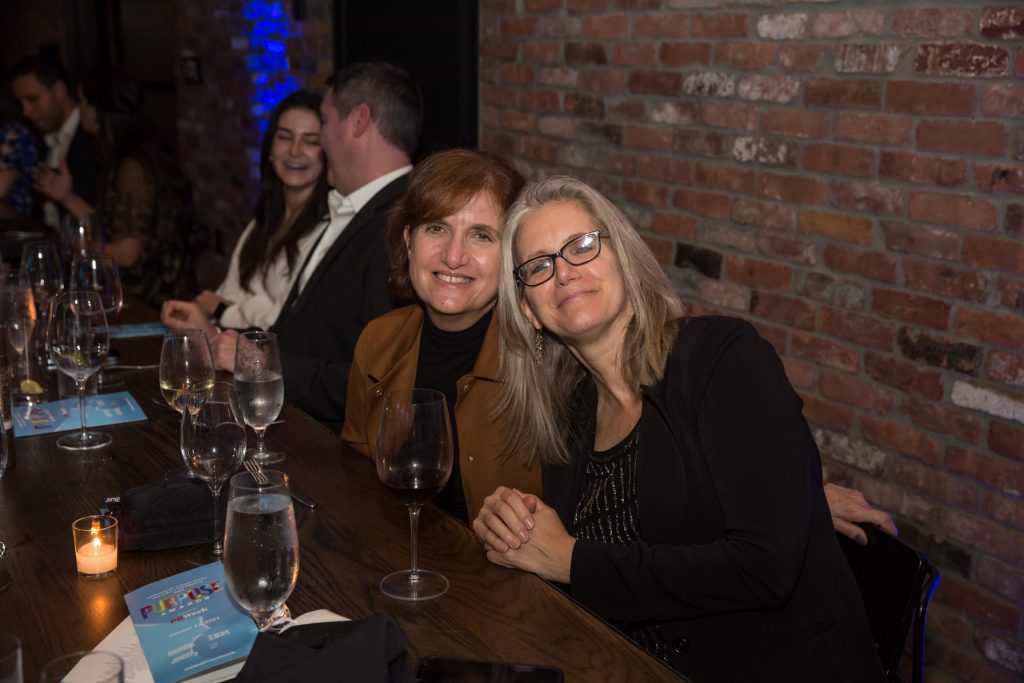
It was in the star-studded food ads that generational range was most obvious: soda (Ice Spice, Aubrey Plaza, Nick Offerman); coffee and cold brew (Ben Affleck, Matt Damon, Anthony Hopkins); mayo (Kate McKinnon, a cat); cookies, chips and candy (Kris Jenner, Chris Pratt, Dan Marino, Terrell Owens, Bruce Smith, Scarlett Johannsen); and delivery (Jennifer Aniston, David Schwimmer). Perhaps Mountain Dew’s spot summed up the messaging vibe for this group best: “I can have a blast anytime, anywhere … and with anyone [Offerman’s mad scientist laugh].” And not least, betting sites rallied with big-hearted cuteness from Kevin Hart, Vince Vaughn, Wayne Gretzky and Tom Brady.
Historical wins and the ghosts of Super Bowl ads past
The Super Bowl’s pregame coverage was dominated by Pizza Hut and, instead of relying on conscience or star power, its marketers delivered a tactic to connect with the public that echoes back to an important ad more than two decades ago. Pizza Hut was working hard to bring “whuuuut??!” into the vernacular. Ever wonder how “whassup?!” was popularized? It wasn’t as organic as it may seem. That greeting, which has permeated American bro culture from sea to shining sea, was brought to us by marketers in a Budweiser ad for Super Bowl XXXIV in the year 2000.
The tactic isn’t the only ghost of Super Bowls past. InBev, for all its grief over Bud Light, played it almost as safe as safe gets for its elder brand, Budweiser, while still trying to warm American hearts. Cue the snowstorm, bar in need, truck driver, farmer, Clydesdales and a heroic Labrador in its ad named “Old School Delivery.” They did manage to give us a Black female bartender and The Band’s Woodstock classic “The Weight” fading in at the end as the day is saved by beer. Somehow, it worked.
The nostalgia zone was filled too with Navy and Marine recruitment ads (though the latter pretty openly alluded to The Hunger Games), a Toyota pickup on dunes, Bass Pro Shop selling pontoon boats, FedEx with an animation play on Elvis and Lindor leaning on Sinatra for its chocolates. There was also a nostalgic but bizarre RFK Jr. political ad that has resulted in him apologizing to his family.
The show-stealer in this group was Volkswagen’s “An American Love Story,” a beautifully produced commercial charting the history of VW from Europe to America, from its beloved early bugs to its hotly anticipated electric retro models. The kicker is that it’s set to Neil Diamond’s “I Am … I Said,” the lyrics of which are worth a good listen to understand this ad’s deeper message. The song is an anthem to feeling lost, but it’s set to music that tells you this person — perhaps this nameless American everyone — isn’t giving up despite proclaiming a searing emptiness inside. The end of the ad could fit into messaging zone one too, since you get to “shape its soul.”
All that’s fluffy and playful
To be fair, several of the smartest and most creative ads of the night fall into this fourth category. Namely, the NFL’s “migration” of Eagles, Seahawks and Ravens promoting NFL Sunday, Hoka’s “Fly human fly” campaign using shifting graphics with a 3-D feel, and Pluto TV’s hysterically blunt commentary on American couch potatoes. Pickleball with eTrade toddlers, feisty Dinamita grandmas, Nerds Flashdancing, and movie promotions for Ryan Reynolds’ IF, Despicable Me 4 and Kung Fu Panda 4 also fit the bill.
We know that more people watched what Super Bowl marketers conjured than ever before in the history of the game. But whether their work brought divided hearts and minds closer is about as clear as whether Joe Alwyn watched any snip of the Super Bowl. We just don’t know yet — and maybe never will.
